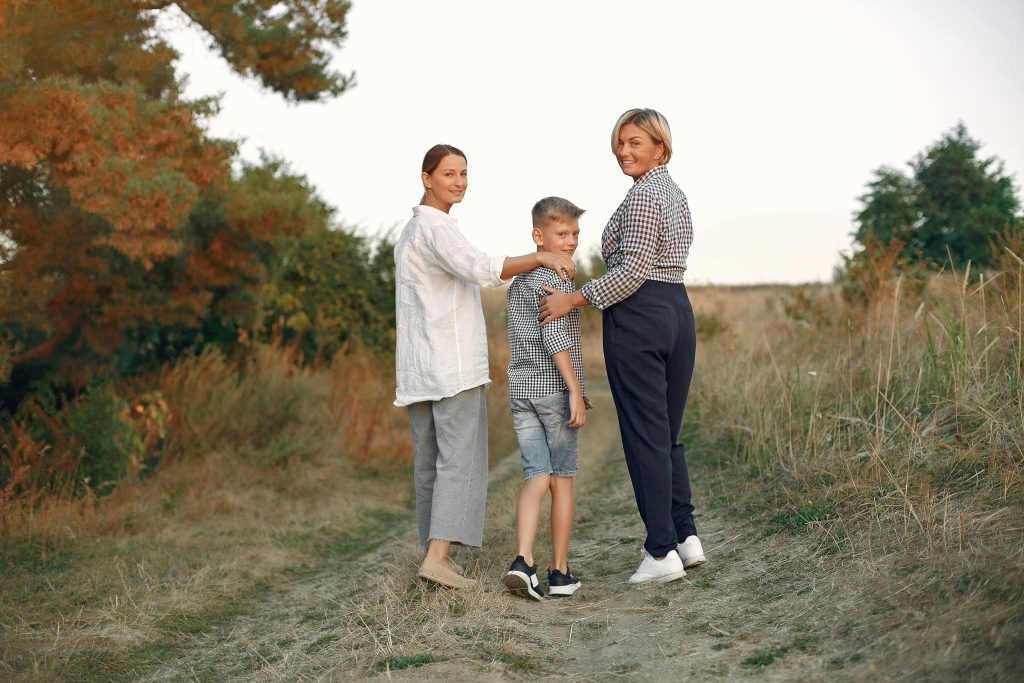Introduction to Psychosocial Development

Psychosocial development begins as children form relationships, interact with others, and understand and manage their feelings. In emotional and social development, forming healthy attachments is very important and is the major social milestone of infancy. Attachment is a long-standing connection or bond with others. Developmental psychologists are interested in how infants reach this milestone. They ask such questions as: how do parent and infant attachment bonds form? How does neglect affect these bonds? What accounts for children’s attachment differences?
The time between a child’s second and sixth birthdays is full of new social experiences. At the beginning of this stage, a child selfishly engages in the world—the goal is to please the self. As the child gets older, they realize that relationships built on give-and-take. They start to learn to empathize with others. They learn to make friends. Learning to navigate the social sphere is not easy, but children do it readily.
While the child is learning about their place in various relationships, they are also developing an understanding of emotion. A two-year-old does not have a good grasp on their emotions, but by the time a child is six, they understand their emotions better. They also understand how to control their emotions—even to the point that they may put on a different emotion than they are actually feeling. Further, by the time a child is six years old, they understand that other people have emotions and that all of the emotions involved in a situation (theirs and other people’s) should be taken into consideration. That said, although the six-year-old understands these things, they are not always good at putting the knowledge into action. We’ll examine some of these issues in this section.
Adolescence is the period of life known for the formation of personal and social identity, in which different roles, behaviors, and ideologies are explored. Adolescents must explore, test limits, become autonomous, and commit to an identity, or sense of self. Early in adolescence, cognitive developments result in greater self-awareness, the ability to think about abstract, future possibilities, and the ability to consider multiple possibilities and identities at once. When adolescents have advanced cognitive development and maturity, they tend to resolve identity issues more easily than peers who are less cognitively developed. In the United States, adolescence is seen as a time to develop independence from parents while remaining connected to them. As adolescents work to form their identities, they pull away from their parents, and the peer group becomes very important; despite this, relationships with parents still play a significant role in identity formation.
When we are children and teens, we eagerly anticipate each and every birthday, waiting for the next big one…when we’ll finally be grown up and have all the freedoms and rights enjoyed by those who are older than us. Indeed, there are opportunities to drive, buy a car, vote, go to college, join the military, drink, move out on our own, date, live together, get married, work, have children, buy a house, and more. This can be an awesome time in our lives, as we tend to be physically and cognitively strong and healthy, we dream and make plans for the future, find people to share our experiences, and try out new roles. It can also be challenging, stressful, and scary as we realize that a lot of responsibility comes with such freedom. We have probably all seen the coffee mugs that proclaim, “Adulting is hard,” or the t-shirts that announce, “I can’t adult today” (typically worn by young adults!).
Development is a process, and we aren’t suddenly adults at a certain age. In fact, we may even take longer to grow up these days. In this module, we’ll learn about norms, trends, and theories about why certain patterns are forming. As you have read, it’s even been proposed that there is a new stage of development between adolescence and early adulthood, called “emerging adulthood,” when young people don’t quite feel like they are adults yet and wait longer to join the workforce, move out on their own, get married, and have children. Yet by the end of early adulthood, most of us will have accomplished the important developmental tasks of becoming more autonomous, taking care of ourselves and even others, committing to relationships and jobs/careers, getting married, raising families, and becoming part of our communities. There are, of course, many individual and cultural differences.
Think of your own life. When will you feel like an adult? Or do you already feel like an adult? Why or why not? Did your parents become adults earlier or later in their lives, compared to you?
Licenses & Attributions (Click to expand)
Lifespan Development by Nicole Arduini-Van Hoose is licensed under a Creative Commons Attribution-NonCommercial-ShareAlike 4.0 International License, except where otherwise noted.
Happy multigenerational women with kid walking in nature by Gustavo Fring is licensed under a Creative Commons Attribution-NonCommercial-ShareAlike 4.0 International License.
